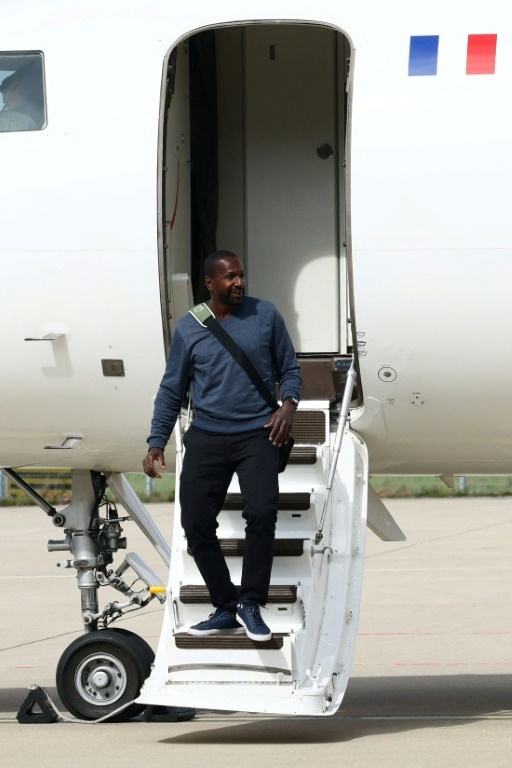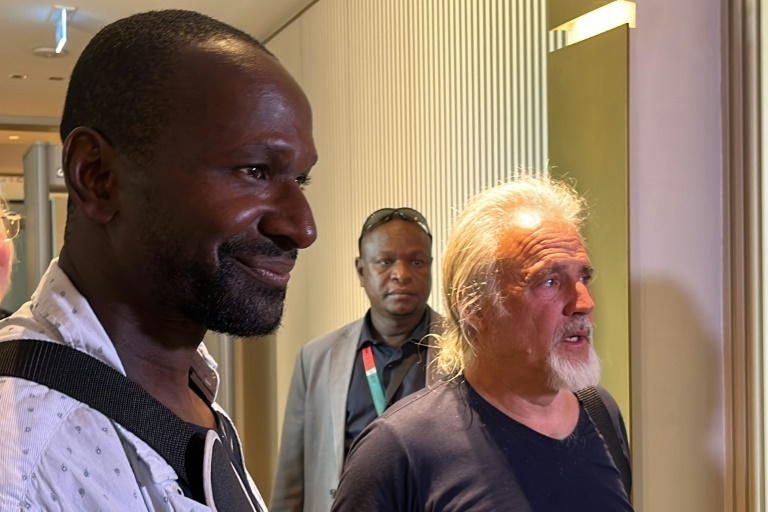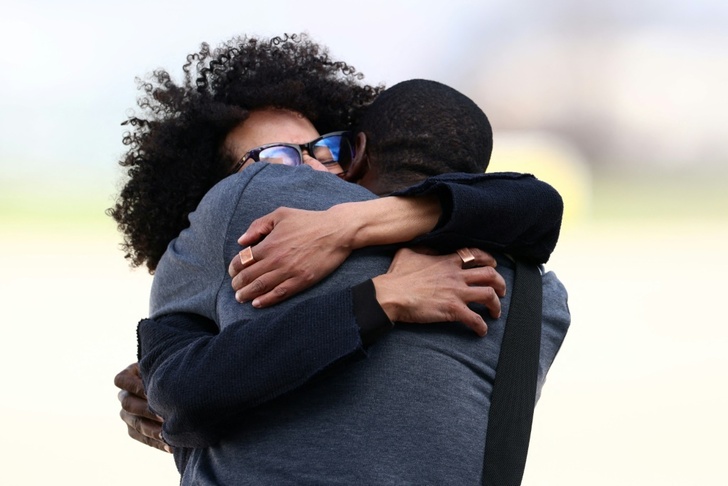Finally home after almost two years in jihadist captivity in Mali, French journalist Olivier Dubois on Tuesday grinned from ear to ear after reuniting with his family.
"I feel better, so much better," the 48-year-old told AFP after landing at Villacoublay airbase outside Paris.
Dubois and US aid worker Jeffery Woodke, 61, had arrived in the capital of Niger, Niamey, a day earlier after being freed.
"Yesterday, I couldn't believe it when I landed at the airport (in Niamey), but it's starting to sink in," Dubois told AFP, after being met by his wife, two children, sister and father.

Beside him, his sister Canele Bernard agreed, laughing.
Dubois was kidnapped in the north of Mali on April 8, 2021.
He said in a video released by his captors that he was taken by the Al-Qaeda-linked Support Group for Islam and Muslims (GSIM), the main jihadist alliance in the Sahel.
Dubois said his 711 days in detention were not easy.
"There were some tough moments," said the freelancer, who was working for French daily Liberation when he was seized.
But "I was not mistreated, nor humiliated or hit".
He said he felt very lucky, even if he was "very, very tired".
Dubois said he had asked the French authorities how his release had been negotiated, but received no answers.
Whether "a prisoner swap, money, both, I don't know," he said.
"I just know that Niger was implicated, as was French intelligence."
- Left to wait 'under a tree' -
Dubois said he was told on March 7 that he would be released "in 15 days' time".
On March 16, he was transported on a motorbike then in a pick-up truck, and left to await his release "under a tree".
He said he only met Woodke, who had been abducted in southwest Niger in October 2016, shortly before they were both freed.
It took them "two nights and a morning" to leave the country.

"You move a lot -- every month, every two weeks," he said.
"They're the ones who make you move. There are alerts, there are drones."
The last place he was held was in Mali's northeastern region of Kidal, he said, though "most of the time" he did not know where he was.
At times, he said, he stayed in the same kind of place for longer, for example spending six months "in open-air prisons".
This allowed him to develop some kind of routine, and habits that gave him a little "more comfort".
Asked about his plans, he said his experience had not put him off being a journalist.
"But I will work a little differently," he said.
Short term, he said he needed to rebuild himself psychologically and learn to sleep again.
Right now, "there's this kind of euphoria, I was freed yesterday," he said. But "there will no doubt be some sort of low" to come.
In the immediate future, he said, his priority would be spending time with his family.
"The rest, we'll see," he said.
dt/ah/jh/pvh
© Agence France-Presse
Your content is great. However, if any of the content contained herein violates any rights of yours, including those of copyright, please contact us immediately by e-mail at media[@]kissrpr.com.
Source: Story.KISSPR.com

